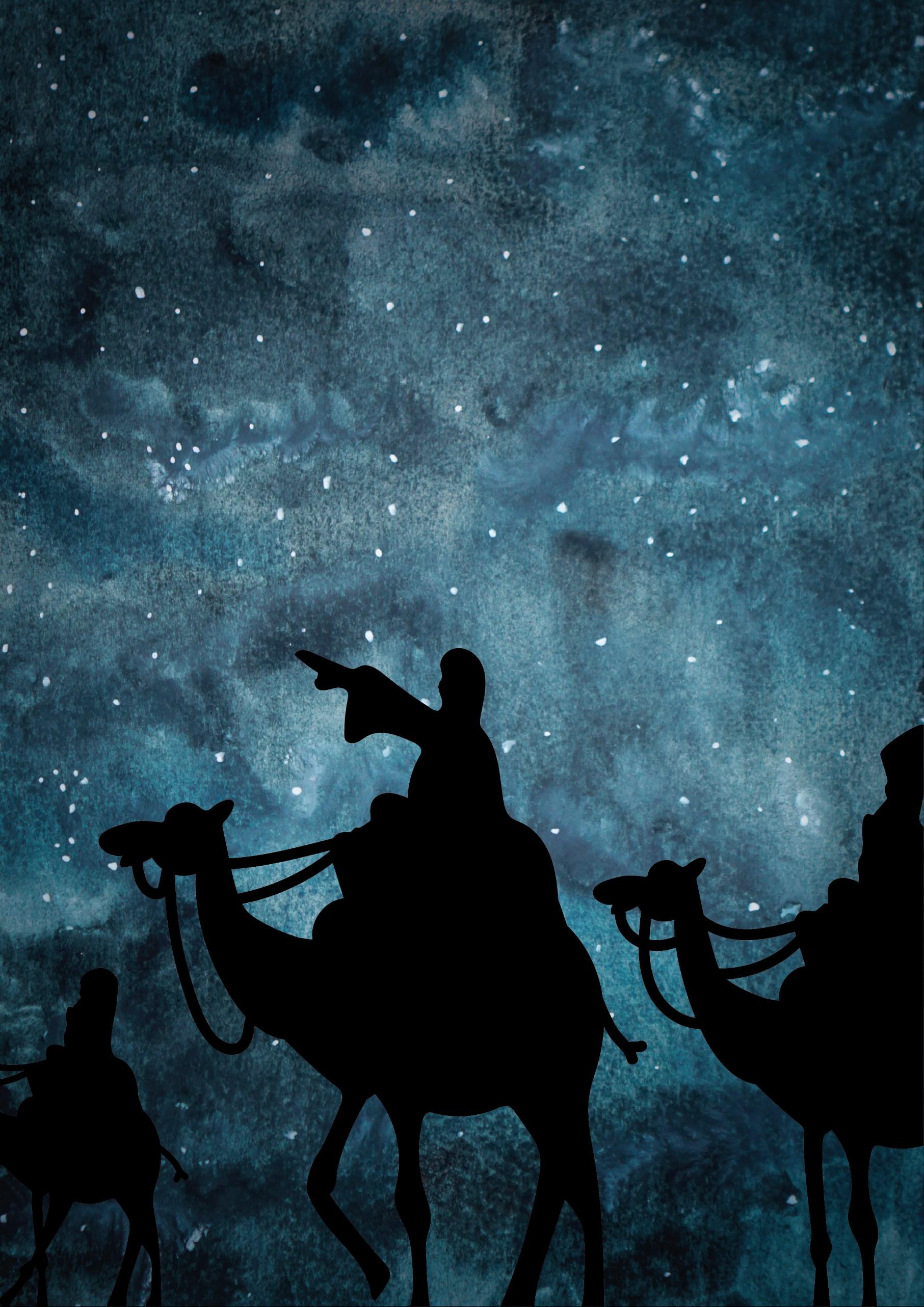Encountering Jesus and the Kingdom (1) Mark and Matthew Sample Lesson: Level 3


Matthew 2:1-2

This sample lesson is from the Level 3 course Encountering Jesus and the Kingdom (1): Mark and Matthew.
Copyright © GOLD Project
All rights reserved. No part of this publication may be reproduced, stored in a retrieval system, or transmitted in any form or by any means, electronic, mechanical, photocopying, recording or otherwise, without written permission from GOLD Project.
Scripture quotations are from the New Revised Standard Version Bible: Anglicized Edition, copyright © 1989, 1995 National Council of the Churches of Christ in the United States of America. Used by permission. All rights reserved worldwide.
Published (2024) by: www.goldproject.org
© GOLD Project 2024
The Group-based Open Learning Discipleship (GOLD) Project is a Charitable Incorporated Organisation (CIO) registered in England, registered charity no. 1166567
Our Open Learning courses are designed to help you learn by means of:
Home Study plus Group Meetings plus Practical Application
Home Study
Each course is made up of five Blocks and each Block has eight lessons. If you have about ¾ hr to spare (very roughly), you can complete one lesson. These lessons require you to read and interact with the course material as well as with your Bible.
Each lesson is programmed to help you check your progress as you work through. To get the maximum benefit it is important that you use the course in the way it was intended:
1. Read section 1 (often referred to by the technical term ‘frame’ 1).
2. Make the response required, if there is one.
3. Check that your answer corresponds with the feedback given in the ‘feedback’ section at the end. (Wherever feedback is given, it is marked with a raven).

4. Proceed to section 2.
Note that the course is programmed you are not being programmed! The aim of programming is that:
1. you can check frequently that you have understood the material presented;
2. you are stimulated to active and critical thinking;
3. you reinforce what you learn and are better able to remember it.
Sometimes, discussion frames are given. These are clearly indicated by a heading ‘For Discussion’ and box. Here you should answer the question in your own words and come to the group meeting prepared to discuss the question as indicated.
At the end of each lesson, we encourage you to spend some time in reflection on how what you have learnt applies to you in the situation where God has placed you.
Group Meeting
Regular group meetings take place (normally fortnightly) where you will have the opportunity to discuss points of interest that have arisen and think through with others how your learning may be applied. At the end of each block of home study, you will also normally be given a five-minute quiz.
The group meetings give the opportunity for you to clarify ideas and to share your own thoughts and to listen to the ideas of others. The process of learning from the Bible in a group is an essential part of the programme. It is here that you are able to think through areas of application and to pray and support each other in your studies.
Practical Application
Built into our courses are questions that encourage you to apply the message of the Bible to daily life. You are also encouraged to think through how your studies relate to your own discipleship and the mission and ministry of the local church.

Block 3 Lesson 4
Mark 9:9-10:52: The Upside Down Kingdom

Preparing for this lesson:
• Take a moment to pray that God will help you as you consider the radical values of his kingdom.
• Remember to keep a notebook handy to note down any questions or issues for discussion.
Objectives At the end of this lesson you will be able to:
1. list four statements which summarise the radical values of God’s kingdom;
2. give Jesus’ ideal view of marriage along with why Moses allowed divorce.
a. The upside down kingdom
1. Starting in Mark 9:33, Jesus begins to teach about the counter-cultural values of the kingdom of God. Picking up on the disciples’ argument about who is the greatest, Jesus takes them aside and states:

“Whoever wants to be first must be last of all and servant of all” (v35).
What do you think Jesus means by this?
a. His followers should not be ambitious.
b. His followers should aim to be those who think about the needs of others before themselves.
c. Other:
2. Jesus then takes a little child in his arms (v.36) and says:


“Whoever welcomes one such child in my name welcomes me, and whoever welcomes me welcomes not me but the one who sent me” (v.37).
What do you think he means by this statement?
a. God identifies with little children.
b. God is concerned about those whom society considers insignificant.
c. Being a servant of all involves welcoming the weak and vulnerable.
d. Other:

3. It is likely that the young child is an example of someone who would be considered weak, vulnerable and insignificant in ancient society. Although Judaism seemed to have a remarkably positive attitude to children in the ancient world, a boy did not become a fully fledged member of society until he was significantly older than thirteen (the age of the Bar-Mitzvah). As for children in the ancient Greek and Roman world, there is evidence that they were often considered to have a similar status to slaves. Among the poor, and even the relatively wealthy, it was acceptable for mothers (probably at the instigation of the father or head of the household) to give their children up either to be sold as slaves or even to be abandoned to their fate (e.g., Romulus and Remus). Such abandonment of infants is technically known as ‘exposure’. N.S. Gill states:
If infant exposure was suitable for their legendary founders, who were the Roman people to say it was wrong for their offspring?
• Exposure allowed poor people to get rid of extra mouths to feed, especially the mouths of baby girls who were also a dowry liability.
• Children who were imperfect in some way were also exposed, supposedly, according to the dictates of the Twelve tablets.
• Exposure was also used to get rid of children whose paternity was unclear or undesirable, but exposure wasn't the only method that was available. Roman women employed contraceptives and received abortions, as well.
The paterfamilias [father of the household] technically had the right to get rid of any infant under his power.
(N.S. Gill, Roman Exposure of Infants: Selling ChildrenHumane Alternative to Abandoning, Abortion, or Killing?)
Now look at Mark 10:13-16, where Jesus states:

“Let the little children come to me; do not stop them; for it is to such as these that the kingdom of God belongs. Truly I tell you, whoever does not receive the kingdom of God as a little child will never enter it.”


For Discussion
What do you think Jesus means by this statement?
a. In order to enter the kingdom of God, we should be innocent and naive.
b. In order to enter the kingdom of God, we should be trusting and dependent.
c. In order to enter the kingdom of God, we should be vulnerable and weak.
d. In order to enter the kingdom of God, we should give up our status and rights.
e. Other:
4. Now look at 9:38-41. Here John asks Jesus a question about a person who was driving out demons in Jesus’ name. The disciples had told him to stop because ‘he was not following us’ (v38). What does Jesus respond?

5. See if you can put in your own words what Jesus is saying here and what its significance is:

6. So Jesus is willing to include unexpected people in the kingdom of God as part of what God is doing. However, there are also those we might expect to be included in God’s kingdom who are not. Which particular group does Jesus address in 10:17-31?

7. The rich young ruler was an example of an upright, law-abiding citizen. More than that, he was a wealthy individual. The disciples clearly thought that such people would easily be part of God’s kingdom. Again, Jesus shows that the values of God’s kingdom are diametrically opposed to the values of the world. It is hard (as hard as a camel going through the eye of a needle) for rich people to enter the kingdom of God. However, Jesus suggests that there may even be hope even for the rich. What is that?

8. Even the upright, law-abiding, wealthy members of society are completely dependent on God to enter his kingdom. Although it is not explicitly stated, perhaps this suggests that Mark thinks that even those whom we consider as healthy are in need of a doctor (cf. 2:17).
In Mark 10:35-45, we come back to the question of greatness and ambition. How would you summarise Jesus’ words in vv.42,43?

9. Of course, the model of our service is the model of Jesus’ own service for the world which we considered above (v.45).
Now let us summarise what we have learnt from this section of Mark’s Gospel about the values of the kingdom. See if you can complete the following statements:
1. Greatness is defined not by ____________ but by ______________ (9:35; 10:43).
2. Insignificant people are ___________________________________ (9:37).
3. Entering God’s kingdom requires ______________ not ______________ (10:15, 24,25).
4. Leadership is defined not by __________ but by _____________ (10:43,44).



